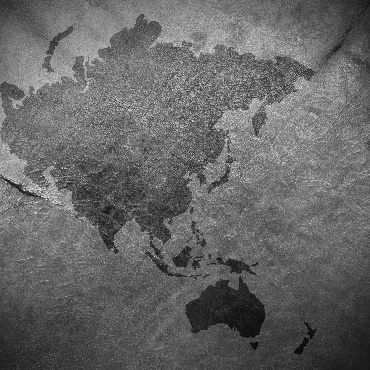ISRAEL'S CRISIS, INDIA'S WORKFORCE
South Asia's laborers have been migrating to parts of the Middle East for decades for job opportunities, and very soon thousands will be reaching Israel as a response to the country's post-October 7th labor shortage. Following Hamas' attack, Israel banned Palestinian workers, creating shortages in key sectors (like construction). Asian countries are filling the resulting void. India, for instance, has put in motion a plan to send 700-1,000 workers per week to Israel until 10,000 workers arrive there. Notably, the plan builds on earlier arrangements signed one year ago between Jerusalem and New Delhi to ease nearly 45,000 Indians into the Israeli workforce by helping them to find employment in the Israeli construction and nursing sectors.
The decision, however, has its fair share of detractors. A number of Indian trade unions previously urged Indians to stay away from the ongoing Israel-Hamas conflict because of the associated war-time risks. And as the months have gone by, they have continued to criticize Prime Minister Narendra Modi's decision to facilitate the flow of Indian labor to Israel, terming it "dehumanizing" and "commodifying." However, for many South Asian men, the economic opportunities available in Israel are simply too significant to pass up. (Times of India, January 31, 2024; South China Morning Post, February 14, 2024)
SRI LANKA SCRAMBLES FOR AN ECONOMIC LIFELINE
On February 3rd, Sri Lanka and Thailand formally signed a Free Trade Agreement (FTA) in a bid to improve the Sri Lankan economy. Two years ago, Sri Lanka was forced to declare bankruptcy for the first time in its history. Colombo is now more than $83 billion in debt, with over half of that sum owed to foreign investors. Discussions regarding the FTA agreement began in 2016 with hopes that trade between the two countries could reach up to $1.5 billion annually. The arrangement encompasses "goods, investment, custom procedures, and intellectual property rights" and the countries have "agreed to promote investment in areas such as fisheries, food processing, tourism and green energy."
Sri Lanka is hoping to use the new agreement to convert $17 billion of its debt into goods, a process which it has already begun with other creditors. For example, in late February, Colombo repaid Iran $20 million in the form of tea. Additionally, Colombo is pursuing trade agreements with its larger neighbors, India and China. While both countries will likely be open to talks as a way of strengthening their respective regional presence, Sri Lanka is attempting to alleviate its debt without becoming a pawn in China and India's intensifying regional competition. (South China Morning Post, February 4, 2024)
A REFUGE IN INDIA... FOR SOME
On March 11th, Indian Prime Minister Narendra Modi declared that his government was beginning implementation of the Citizenship Amendment Act (CAA), which was passed through Parliament back in 2019. This act will replace the 1955 Citizenship Act and is meant to protect those fleeing religious persecution in the neighboring countries of Pakistan, Bangladesh, and Afghanistan, fast-tracking Indian naturalization for these refugees. Notably, however, only Hindus, Buddhists, Christians, Sikhs, Jains, and Parsis are covered under the measure; Muslims are excluded. The new legislation represents a marked change from previous regulations, in which applicants were not made to specify their faith.
When the act was first announced in 2019, it was met with wide-scale protests that resulted in a crackdown that left over 100 people, mostly Muslims, dead. Similar protests have erupted following the recent announcement, and numerous international organizations have spoken out against this legislation, including Amnesty India, the UN Office of the High Commissioner for Human Rights, and the U.S. State Department. Some critics believe the timing of this announcement is an election tactic meant to mobilize and encourage voters to support Modi and his BJP Party in the country's general elections, now underway. (Associated Press, March 15, 2024; South China Morning Post, March 17, 2024)
NOW DELHI IS COURTING THE TALIBAN, TOO
More than two years after it regained control of the country, Afghanistan's Taliban movement is increasingly becoming normalized by its regional neighbors. India, while remaining to withhold recognition of the Taliban, is the latest country to reverse the international community's isolation of the Islamist group in favor of cautious engagement. On March 7th, J.P. Singh, the External Affairs Ministry Joint Secretary in charge of Pakistan, Afghanistan, and Iran led a delegation for talks with Amir Khan Muttaqi, the Taliban's Foreign Minister, regarding humanitarian assistance, economic and transit opportunities, and more. Singh's trip marked the third visit to Kabul by Indian officials since the Taliban returned to power in 2021.
For India, engagement with the Taliban is an opportunity to enhance trade and regional security issues confronting Delhi, especially in light of weakening Afghanistan-Pakistan ties. Given Afghanistan's geopolitical location, India is also hoping to gain access to the country's mineral wealth, easier transit access to Central Asia, and increased regional trade via the Chabahar port in southeastern Iran. (Indian Express, March 8, 2024; Voice of America, March 28, 2024)
Want these sent to your inbox?
Subscribe

